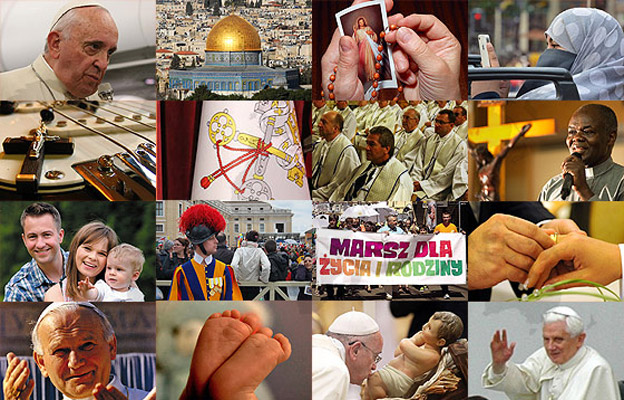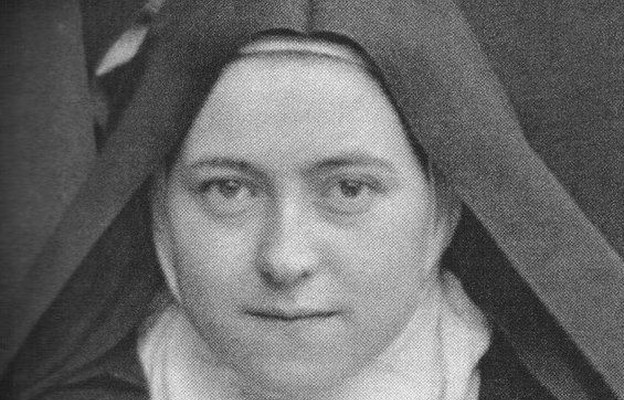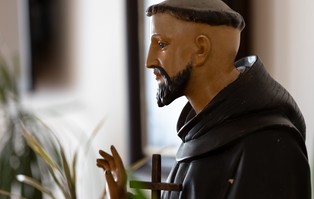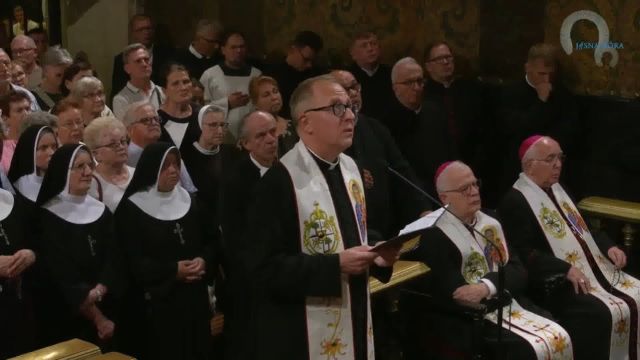We referred to it jokingly, but somewhat accurately, as „New Bishops´ School.” From September 10th to 19th in Rome, I attended a conference organized by the Vatican Congregation
for Bishops with 105 other bishops from around the world, including the other new Auxiliary Bishops of Chicago, Bishop Francis Kane and Bishop Gustavo Garcia-Siller. We were all appointed bishops
within the past year. As newly-consecrated successors of the apostles, we came to Rome to make a pilgrimage to the tomb of St. Peter, the first Pope, to reflect on the role of bishops,
and to meet with the present Holy Father, Pope John Paul II.
Experts spoke to us on seventeen different topics which constitute some of the major aspects of the ministry of bishops. After concelebrating Mass with His Eminence Joseph Cardinal Ratzinger, Prefect
of the Congregation for the Doctrine of the Faith, we listened to a presentation by Archbishop Angelo Amato, Secretary of the Congregation for the Doctrine of the Faith, on the theme,
„The Bishop as Guardian of the Faith.”
One of the promises that a new bishop makes when he takes the oath of fidelity on the day of his consecration as a Bishop is that he will „make every effort to ensure that
the deposit of faith handed down from the Apostles is preserved pure and entire, and that the truths to be held and put into practice will be passed on and clearly explained to all, as they are proposed
by the Church´s Magisterium.” To transmit the faith properly, one must reflect the image of Christ, who is the Way, the Truth, and the Light.
Christ is the Way to holiness. As the Second Vatican Council reminds us, all are called to be saints, everyone is called to a life of sanctity. The way of Christian spirituality is for
all the baptized, not just a select few. The path to heaven is through the way of following Christ. One of the ways to follow Christ more closely is to know Him better, which we can
do through catechesis or religious education. Learning more about Christ and understanding our faith better is a task for people of all ages, not just children. Too many adults are content
with the religion classes they had in grade school. No one would accept an accountant who had not studied math since eighth grade. Yet somehow people think that they learned all the religion they needed
to know when they were thirteen. If we really want to be holy, we certainly need to pray, but we also need to know our Lord better by further exploration of the truths
of our faith.
Christ is the Truth who will set us free. This Truth is described in Sacred Scripture and in the teaching of the Church. A major reflection on this theme is „Veritatis Splendor,”
the encyclical of Pope John Paul II. The Holy Father´s letter affirms that there is a truth that is absolute, perfect and complete. This Christian truth stands in contrast to the relativistic
ambiguity so prevalent in the pluralistic mentality.
Christ, the Life, also stands in contrast to the „culture of death.” Pope John Paul II has also spoken and written frequently about this reality. Jesus is the word of Life (1 John 1: 1).
If we are to preach the Gospel of Life in its entirety, we must proclaim and promote the „culture of life,” which respects all human life from conception to natural death.
The primary instrument for proclaiming and promoting the culture of life is the local Church, because the local Church is the subject of the inculturation of Christ and the Christian way, truth and
life. The key to the proper transmission of the faith is to love the Church, to think with the Church („sentire cum Ecclesia”) and remain in communion with the Church.
In the weeks ahead, I will write about some of the other themes discussed during our conference on the role of bishops.
Pomóż w rozwoju naszego portalu
















